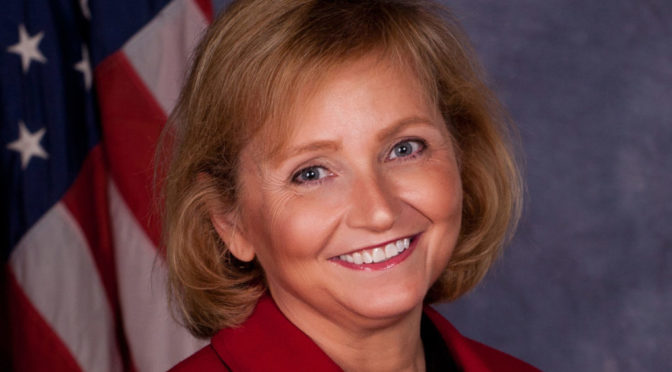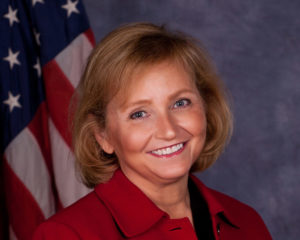Governor Laura Kelly Signs Several Pieces of Bipartisan Legislation into Law
TOPEKA – Today, Governor Laura Kelly signed 26 pieces of bipartisan legislation into law.
“Today, I signed 26 bipartisan bills that will help everyone from Kansas veterans, to businesses, to farmers, to our infrastructure and our environment,” Governor Laura Kelly said. “This is the kind of success that can be achieved when we work together – not as Republicans or Democrats – but as Kansans. I want to thank my colleagues in the legislature, on both sides of the aisle, for their efforts.”
House Bill 2021
HB 2021 authorizes the Kansas Development Finance Authority (KDFA), on and after July 1, 2021, to issue bonds, not to exceed $10.5 million, for the purpose of financing the construction of a state veterans home facility located in northeast Kansas, including, but not limited to, in Douglas, Jefferson, Leavenworth, Shawnee, and Wyandotte counties.
House Bill 2074
Senate Sub. for HB 2074 enacts the Technology-enabled Fiduciary Financial Institutions Act (Act), which will be part of and supplemental to Chapter 9 of the Kansas Statutes Annotated (the Kansas Banking Code). On July 1, 2022, the bill requires the State Bank Commissioner issue a charter to The Beneficient Company and establish a fidfin fiduciary institution pilot program with an economic growth zone designated in Harvey County. The bill also establishes an income and privilege tax credit beginning in tax year 2021 for trust banks in an amount equal to such fiduciary financial institution’s qualified charitable distributions during such taxable year if the trust bank maintained such fiduciary financial institution’s principal office in an economic growth zone.
House Bill 2102
Senate Sub. for HB 2102 updates the Kansas Egg Law regarding repackaged eggs.
House Bill 2114
HB 2114 creates the Kansas Senior Care Task Force, creates and amends law regarding elder and dependent adult abuse multidisciplinary teams, and amends law regarding abuse, neglect, or financial exploitation of adults.
House Bill 2143
HB 2143 modifies law related to sales tax.
House Bill 2201
Senate Sub. for HB 2201 modifies certain provisions related to the Eisenhower Legacy Transportation Program (Eisenhower Program).
House Bill 2203
HB 2203 establishes the Asbestos Remediation Fund (Fund). The bill also requires the Secretary of Health and Environment (Secretary) to remit all moneys received from the following sources to the State Treasurer, to be credited to the Fund:
- Permit and approval fees related to the Asbestos Control Program;
- Moneys recovered by the State under the provisions of the Asbestos Control Act (Act), including administrative expenses and moneys paid under any agreement stipulation, or settlement; and
- Interest attributable to investment of moneys in the Fund.
The bill requires moneys in the Fund to be expended only for the purpose of administering the Act, including funding of a technical and environmental compliance assistance program.
House Bill 2243
HB 2243 makes several changes to law governing the Kansas Public Employees Retirement System (KPERS or the Retirement System) pertaining to a study performed by the KPERS Board of Trustees, authorization of the allotment for the KPERS Death and Disability Program and a moratorium on payments in FY 2021 by all employers, provisions in the Kansas Deferred Retirement Option Program (DROP) Act relating to participating members’ election and extension of their DROP periods, and administration of certain KPERS benefits and the application of certain federal Internal Revenue Code provisions on the Retirement System (“guidepost” section).
House Bill 2244
HB 2244 amends the Commercial Industrial Hemp Act (Act) to transfer registration and regulation of industrial hemp processors from the Kansas Department of Agriculture (KDA) to the State Fire Marshal (Fire Marshal). The bill also amends law regarding the disposal of industrial hemp; the definition of “hemp products”; marketing, selling, or distributing hemp products unlawfully without registration or licensure; and an exception for transportation of industrial hemp between producers and processors.
House Bill 2254
HB 2254 increases the monetary cap on irrevocable prearranged funeral agreements, contracts, or plans, on and after July 1, 2021, to $10,000, which will increase in an amount equal to the average percentage increase in the Consumer Price Index each year. The bill also amends the documentation a licensed crematory operator or crematory operator in charge is required to receive, prior to the cremation of any dead human body, to only a completed and executed coroner’s permit to cremate, if required under the Uniform Vital Statistics Act (Act).
House Bill 2390
HB 2390 reviews, amends, and adds exceptions to the Kansas Opens Records Act (KORA) and creates and amends law regarding the filing of fraudulent liens.
House Bill 2391
HB 2391 amends law related to the Office of the Secretary of State. The bill revises and updates certain provisions pertaining to business and other related filings and repeals obsolete laws.
House Bill 2405
HB 2405 authorizes the Kansas Development Finance Authority (KDFA) to issue bonds, in one or more series, in an amount not to exceed $500.0 million, plus all amounts required to pay the costs of issuance. Proceeds from those bonds must be applied to the unfunded actuarial pension liability (UAL) of the Kansas Public Employees Retirement System (KPERS). The interest rate of those bonds may not exceed 4.3 percent. Bonds may not be issued without approval of the State Finance Council, which may give approval while the Legislature is in session. The bonds issued and interest owed would be an obligation of KDFA and not KPERS. The bonds issued would not be considered a debt or obligation of the State for purposes of the Kansas Constitution. The Department of Administration and the KDFA would be permitted to enter into contracts to implement the payment arrangements after the bonds are issued.
House Bill 2408
HB 2408 authorizes and directs the Executive Director of the Kansas Historical Society (KSHS), on behalf of the KSHS, to convey by quitclaim deed a 9.86 acre parcel of land in Doniphan County to the Iowa Tribe of Kansas and Nebraska.
Senate Bill 26
House Sub. for SB 26 updates statutes related to the regulatory authority of the Kansas Corporation Commission (KCC) with regard to motor carriers.
Senate Bill 36
SB 36 amends procedures related to certain vehicle identification number (VIN) checks and transfer of ownership of certain salvage vehicles; prohibits a motor vehicle from being towed out of Kansas without the consent of the driver or owner of the vehicle; and makes technical changes, including changes to remove outdated language.
Senate Bill 38
SB 38 establishes a pesticide waste disposal program and adds and amends law regarding the roles of the Division of Conservation (Division) within the Kansas Department of Agriculture (KDA) and the State Conservation Commission (Commission).
Senate Bill 67
SB 67 creates law regarding the right-of-way for funeral processions and for certain vehicles involved in utility repairs.
Senate Bill 95
SB 95 amends a requirement regarding odometer readings upon assignment of a vehicle title and amends the definitions for “all-terrain vehicle” (ATV) and “recreational offhighway vehicle” (ROV).
Senate Bill 103
SB 103 amends the Kansas Power of Attorney Act (Act) to state a power of attorney executed on or after July 1, 2021, is deemed sufficient if in substantial compliance with the form set forth by the Judicial Council, and the bill directs the Judicial Council to develop such form. The bill states the amendments made by the bill shall apply prospectively and shall not affect the validity of a power of attorney executed prior to July 1, 2021.
Senate Bill 106
SB 106 enacts the Revised Uniform Law on Notarial Acts (RULONA) and repeals the Uniform Law on Notarial Acts (ULONA), as well as other current laws regarding notaries. Throughout RULONA, some provisions from ULONA and other current law are continued, reorganized, or updated without substantive changes. The bill also updates references to ULONA in other areas of statute. This summary sets forth the RULONA structure and notes provisions containing substantive changes or additions to ULONA and other current law provisions.
Senate Bill 107
SB 107 enacts the Uniform Fiduciary Income and Principal Act [UFIPA] and repeals the Uniform Principal and Income Act (1997) [UPIA]. Throughout the UFIPA, some provisions from UPIA are continued, reorganized, or updated without substantive changes. The bill also amends one statute within the Kansas Uniform Trust Code (UTC). This brief summarizes the UFIPA structure and notes provisions containing substantive changes or additions to UPIA provisions.
Senate Bill 122
SB 122 amends various sections within the Kansas Rules of Evidence (Rules).
Senate Bill 142
SB 142 requires an operator of any watercraft vessel to require every person on such vessel age 12 or younger to wear a U.S. Coast Guard-approved personal flotation device while aboard or being towed by a vessel unless the person is below decks or in an enclosed cabin. The bill requires the Secretary of Wildlife, Parks and Tourism to promulgate rules and regulations regarding required personal flotation devices. Currently, regulation of personal flotation devices is set in statute.
Senate Bill 143
SB 143 updates and rearranges definitions regarding grain and grain warehouses, clarifies when applications for licenses should be made, removes a reference regarding an independent public accountant, clarifies the fee for a functional unit license, increases the caps for storage fees, and increases the allowable examination period for grain warehouses.
Senate Bill 178
SB 178 amends provisions in the Kansas Banking Code governing organization and supervision to permit a national bank, federal savings association, or federal savings bank to convert to a state trust company. The bill also permits a trust company to convert its charter to one of the above-named financial institutions.



